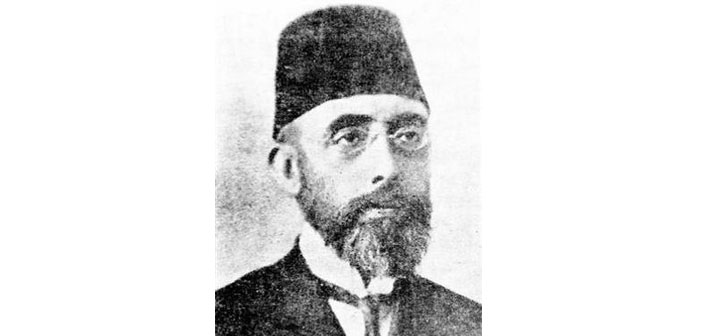‘Beni Ermenileri tehcir etmem için gönderiyorsanız, bunu yapamam!’


Mehmet Celal Bey, 1908 yılında II. Meşrutiyet’in ilanından sonra Erzurum valiliğine atanır. Erzurum’daki hizmetinin ardından kısa süre Edirne ve İzmir valiliği görevlerinde bulunur. 1914 yılında savaşın patlak vermesiyle bitlikte Halep valiliğine atanır. Halep vilayetine bağlı olan Zeytun’daki Ermenilerin tehcir edilmesi emri geldiğinde buna şiddetle karşı çıkar. Hemen Ermeni ileri gelenleriyle görüşerek barışçıl bir çözüm arayışına girer, ne ki tam o günlerde Zeytun kazası Halep vilayeti sınırlarından çıkarılarak Zeytun’a tehciri uygulayacak bir idareci atanır.
Garanti vermişler
Mehmet Celal Bey tehcir emrine karşı gelmesinin ardından görevden alınır. İstanbul’a dönmesi sakıncalı olabileceği düşünülerek Konya valiliğine atanır. Ne ki Mehmet Celal Bey doğru bildiğini yapmaya uygulamaya, vicdanının sesine kulak vermeye devam eder. Gözlerini muayene ettirmesi gerektiğini söyleyerek İstanbul’a geçer ve soluğu İttihat ve Terakki merkezinde alır. Mehmet Celal Bey’in, burada görüştüğü parti yetkililerine ısrarla “Eğer beni Konya’ya Ermenileri tehcir etmem için gönderiyorsanız, bunu yapamam!” dediği kaydedilir. Vali Celal Bey, şehirdeki Ermenilerin tehcir edilmeyeceği garantisini aldıktan sonra Konya’nın yolunu tutar.
’30-40 bine yaklaşmıştı’
Vali Celal Bey, Konya’ya trenle ulaştığı anı, 18 Kasım 1918 tarihli Jamanak gazetesinde yayımlanan röportajında şöyle anlatmaktadır:
“[…] Görev yerime ulaşana kadar yerel Ermenilerin büyük bir kısmı tehcire tâbi tutulmuştu. Kalanlar istasyondaydılar ve hemen evlerine tekrar yerleştirilmelerini sağladım. Akşehir ve Ilgın bölgesi benim görev sürem boyunca tehcire tâbi tutulmadı. Fakat bir de, tehcir yolunda diğer bölgelerden Konya’ya gelen Ermeni muhacirler sorunu vardı. Bunların durumlarına üzülmemek mümkün değildi. Sayıları bir dönem 30-40 bine yaklaşmıştı. Merkez bunların gönderilmesi için baskı kuruyor, devamlı olarak sürülmeleri yönünde emirler gönderiyordu. Fakat vicdanıma karşı hareket edemezdim.”
Eşitlikten yana
Mehmet Celal Bey, tehcire bu denli muhalefet ettiği için bir süre sonra Konya’daki görevinden de azledilir. Bölgedeki Ermeniler, yurtdışındaki akrabalarına yazdıkları mektuplarda Celal Bey’den övgüyle bahseder, kendisine dualar ederler. Öyle ki, Talat Paşa, İstanbul’dan yurtdışına kaçmaya çalışan bir Ermeni gencin yanında böyle bir mektuba rastlar ve bu bilgiyi Celal Bey’le paylaşarak “Ermeniler mektuplarında size çok büyük övgüler düzüyorlar” der. Celal Bey şu şekilde cevap verir: “Eğer Türklerin ve Arapların mektuplarını da görseydiniz emin olunuz ki aynı şeyleri o mektuplarda da bulacaktınız.” Bu kısa görüşme, Mehmet Celal Bey’in eşitlikten yana, vicdanlı bir devlet adamı olduğunu bir kez daha ispatlar niteliktedir.
‘Gizli emir’
Vali Celal Bey, yukarda sözünü ettiğimiz Jamanak röportajında yöneltilen “kendisine herhangi bir ‘gizli’ emir gelip gelmediği” sorusuna verdiği cevapta gelen emirlerin içeriğini ve tehcire karşı durma gerekçesini net biçimde ortaya koyarak Ermenilere seslenir: “Bize gelen resmi emirler tehcirle ilgiliydi. Fakat tehcir de bir mahvetme değil miydi? Belki detaylı soruşturmalarda önemli noktalar ortaya çıkarsa biz de bildiklerimizi iletiriz. Ne olması gerekmiyorduysa oldu. Her şeyden önce, memleket ekonomik ve siyasi olarak çöktü. Fakat ben bana karşı Ermenilerin hissiyatını bilmekteyim; tüm Türkleri ve Müslümanları bu olanlardan ötürü sorumlu tutmasınlar isterim. Ben Ermenilere iyilik yaptım ve ben de bir Türk’üm. Faik Ali Bey de Türk. Aynı şekilde Diyarbekir valisi Dr. Reşid tarafından öldürtülen o iki vicdanlı kaymakam da Türk’tü. Onlardan birini tanırdım, çok değerli bir gençti. Ermeni öldürmemek için kendilerini kurban etmişlerdir. Başka ne gibi büyük bir erdem olabilir? Ermeni halkının da yanlış bir fikir peşine düşüp, dar gününde onun yanında olan dostlarını katillerle ve vatan hainleriyle bir tutmamasını ümit ederim. Benim Ermeni halkından ricam budur. Bugün herhangi bir görevim yok, vicdanım rahattır; tüm dünya önünde samimi bir şekilde ifade etmek isterim ki vatanıma hizmet ettim ve tek bir Ermeni’nin dahi öldürülmesine izin vermeyerek birçok garibanın gözyaşlarını sildim.”
Mehmet Celal Bey, 15 Şubat 1926 tarihinde, Osmanbey’deki evinde geçirdiği kalp krizi sonucu hayatını kaybeder ve cenazesi binlerce Ermeni ve Türk vatandaşın katılımıyla toprağa verilir.



